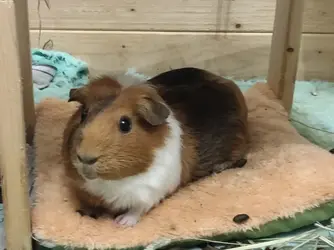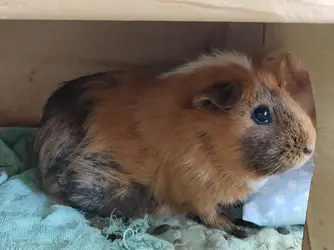Pohtaytur
Junior Guinea Pig

 My female pig Henry started having signs of hair loss, so I took her to the vet was soon as I could. As suspected, the vet confirmed they were signs of an ovarian cyst after feeling her inner part of her abdomen, and recommended surgery to remove the full reproductive system.
My female pig Henry started having signs of hair loss, so I took her to the vet was soon as I could. As suspected, the vet confirmed they were signs of an ovarian cyst after feeling her inner part of her abdomen, and recommended surgery to remove the full reproductive system.I figured that it would be best to have spay surgery since it's still in the early stages and she's still very healthy otherwise. She's very active and has a healthy appetite as usual. Her weight is stable as well. Still, I'm worried since she is a 7 year old pig based on her adoption files and risk due to anesthesia can still happen.
This vet clinic specializes in exotics so I'm sure they can handle it well, though this is my first pet surgery so I'm a little nervous. They were helpful in providing the names of the drugs for the surgery: isoflurane 99.9%, onsior and tramadol. There is also mention of abaxis for a preanesthetic profile and laser treatment for recovery. Should I do a preanesthetic? Does it normally make a difference for guinea pigs?
Her surgery is happening on the 17 so I'm preparing for post surgery care as of currently. On a more positive note, I've noticed that her skin colour matches her patches of fur and I think it's very cute.